The Acts of the Apostles
The Growth and Expansion of the Church to the Ends of the Earth
Acts 13:1-28:31 (18)
Paul’s Second Missionary Journey (15:36-18:22) (3)
I. The Prologue (1:1-8)
II. The Founding of the Church in Jerusalem (1:9-8:3)
III. The Growth and Expansion of the Church in Judea and Samaria (8:4-12:25)
IV. The Growth and Expansion of the Church to the Ends of the Earth (13:1-28:31)
A. Paul’s First Missionary Journey (13:1-14:28)
B. The Jerusalem Council: Gentile Salvation (15:1-35)
C. Paul’s Second Missionary Journey (15:36-18:22)
1. The Separation of Paul and Barnabas (15:36-41)
2. The Formation of Paul’s Missions Team (16:1-4)
Progress Report #5 (16:5)
3. The Call to Macedonia (16:6-10)
a. The Spirit’s Objection: The Closing of a Door (16:6-8)
1) Hindered from Ministering in Asia (16:6)
● forbidden to cause something not to happen
2) Hindered from Ministering Bithynia (16:7)
3) Stuck in Troas (16:8)
● The Guidance of the Holy Spirit (Excursus 1)
○ We should make plans and realize that God’s sovereign will, will take precedence over them.
○ Where the Bible has spoken, we are obligated to follow Holy Scripture not our feelings, experiences, or impressions.
○ Trying to read into or interpret spiritual significance from one’s experiences or circumstances is referred to in the Bible as divination and is akin to witchcraft.
○ The Bible does not identify either “fleeces” or the “peace of God” as a means by which a believer can determine God’s will.
○ Believers are only obligated to obey what the Bible prescribes/commands and to apply its principles to their lives, outside of that, they are free to makes decisions based on their desires.
b. The Spirit’s Guidance: The Opening of a Door (16:9-10)
● The Guidance of the Holy Spirit (Excursus 2)
○ The preventing of the believer’s plans from coming to fruition should not necessarily be understood as every facet of the plan being rejected by God. Rework the plan or come up with a new one and keep moving forward.
○ Getting frustrated with God’s sovereign providence is not only a losing battle, but it incorrectly concludes that one knows the sovereign plan of God, which they do not.
○ When living within the boundaries of Holy Scripture, learn to rest in the sovereign intentions of the Lord.
4. The Outreach in Philippi (16:11-40)
a. The Journey to Philippi (16:11-12)
1) The Journey (16:11)
2) The City (16:12)






